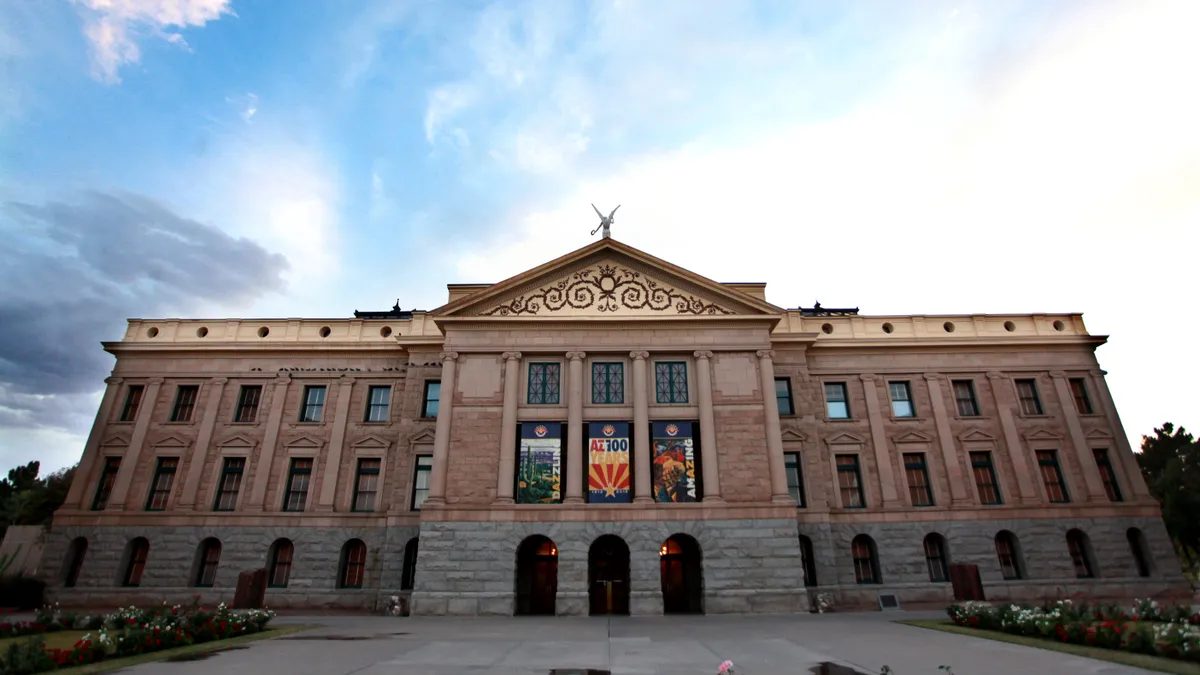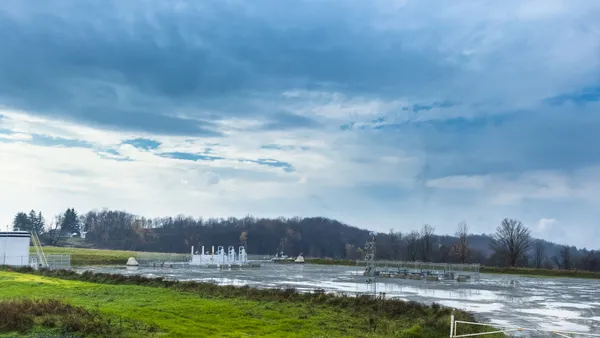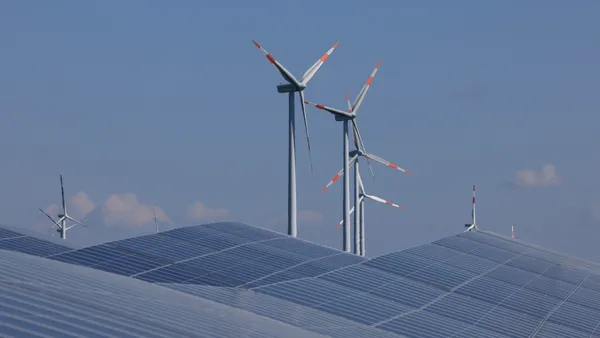Dive Brief:
- The Arizona Corporation Commission (ACC) voted 3-2 on Wednesday to restart a rulemaking process to establish a 100% clean energy standard for the state. Despite more ambitious federal discussions and other state clean energy standards, regulators would consider a 2070 mandate, instead of the previously proposed 2050 deadline.
- The standard is part of a wider rules package that passed largely intact, stakeholders said, including planning requirements for energy storage, energy efficiency and all-source procurement. The rules package was previously rejected in a May 5 meeting, and is the culmination of a three-year effort from regulators and stakeholders, including investor-owned utilities.
- The commissioners are expected to vote on a final rule in the fall, but stakeholders warn that will likely invite further litigation, as the state legislature attempted to curb regulatory authority of the ACC to set a clean energy standard in the 2021 session.
Dive Insight:
Arizona Public Service (APS) and other regulated utilities in the state have shown support for the clean energy rules.
APS and Tucson Electric Power (TEP) had kicked off their next integrated resource planning (IRP) process based on the proposed rules — particularly the inclusion of stakeholder input in the IRP process. "We're going to have a larger, more robust stakeholder process that includes all-source bidding," said Amanda Ormond, managing director of Western Grid Group, a regional advocate for transmission access.
All-source procurement solicitations are a resource acquisition process meant to allow technologies to compete fairly against each other, and to eliminate potential biases from vertically integrated utilities toward overprocurement, self-generation and fuel-based generation, according to a 2020 paper from Energy Innovation and the Southern Alliance for Clean Energy.
APS stakeholders will "participate in an All-Source Request for Information (RFI) process and provide feedback on our Integrated Resource Plan (IRP) draft," Yessica Del Rincón, APS spokesperson, said in an e-mail. "APS is utilizing an All-Source-RFP to meet its' 2023-2024 and future resource needs."
For its IRP, the utility has been working with a stakeholder engagement group developed through the ACC's proposed energy rules to create a pathway for stakeholder input "during assessments of future load forecasts and energy needs," she said.
"Tucson Electric Power's latest integrated resource plan was designed to consider the development of new energy rules in Arizona," Joseph Barrios, utility spokesperson, said in an e-mail.
The portfolios TEP is considering in its most recent IRP includes some scenarios based on proposals relating to the new energy rules.
"TEP is optimistic about the potential for an open market to provide cost-effective, sustainable solutions to the Company's future energy and capacity needs. Therefore, the Company is committed to procuring future resources through all-source [requests for proposals] based on specific, identified system needs," the utility wrote in its IRP filed in 2020.
Utilities also have more ambitious resource mix goals than the state.
The proposed rules would also establish a 50% clean energy goal by 2032 and 80% by 2050.
"That's not where the federal conversation is, that's not what any of the other states having this conversation are doing," said Autumn Johnson, Arizona government affairs manager of Western Resource Advocates. But "those interim dates are really important to get something on the table now."
Arizona established in 2006 a utility requirement to get at least 15% of electricity from clean emissions resources by 2025.
The 2006 decision was challenged in court, although the ACC's authority to set that requirement was ultimately upheld. A separate 2020 ruling has created an opportunity for the legislation to question the commission's authority despite the previous ruling.
The ACC's latest vote starts a process that requires stakeholder input starting July 9, and prompts regulatory staff to report on the comments and the rulemaking.
"If and when it gets final, is there some kind of lawsuit? That's the political realities of Arizona. Having one Republican that supported this rule, maybe that helps ultimately," Ormond said.
The package was moved forward following joint amendments from Democrat Commissioner Anna Tovar and Republican Commissioner Jim O'Connor. They were joined by Democrat Commissioner Sandra Kennedy, who first entered a letter into the record to entertain the reconsideration of the clean energy rules package.
Republican Commissioner Justin Olson voted against the package, having previously rejected it on May 5, after passing an amendment that changed the clean energy mandate into a softer target for the power sector. Republican Chair Lea Márquez Peterson, who rejected the Wednesday package, also noted during the hearing that she supported goals for the industry, as opposed to standards that would be enforced.
"[W]e had a bipartisan vote yesterday to implement a carbon standard. It's not a strong standard but it's a strong feat to enact this" in Arizona, said Johnson.















